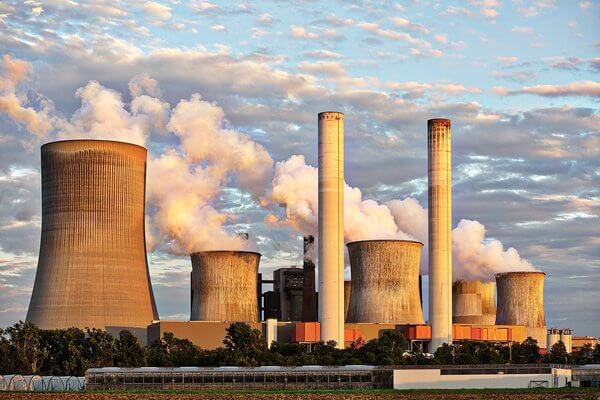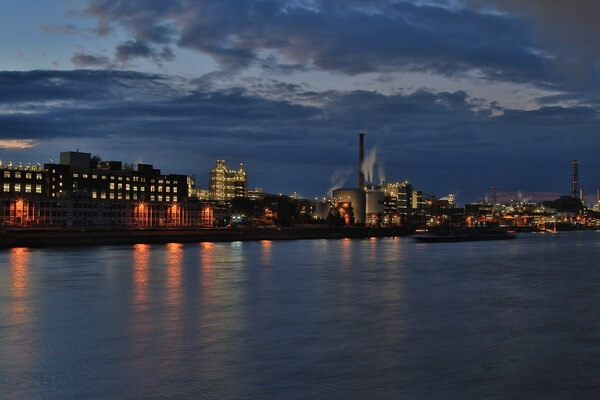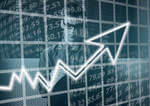News Release from windfair.net
Wind Industry Profile of
A gloomy outlook for Germany's economy
On-going disputes in the governing coalition, high energy prices, pressure from abroad: the list of concerns in the German economy is currently long. No wonder the mood is bad. The outlook in the energy transition barometer of the German Chamber of Industry and Commerce (DIHK), for example, is currently looking grim. 3,572 companies from all sectors and regions of the country took part, ensuring the worst score since the surveys began in 2012. "Worries about one's own competitiveness have never been greater," says Achim Dercks, Deputy Managing Director of the DIHK, when presenting the survey results.
And the economic barometer of the German Institute for Economic Research (DIW Berlin) has no more positive outlook to offer: "There is still no clear upturn in sight for the German economy," explains Timm Bönke, co-head of forecasting and economic policy at DIW Berlin. "The economy stagnated in the second quarter after the winter recession and is likely to grow only modestly in the second half of the year as well."
The economic weakness is currently affecting all sectors. The energy sector in particular is currently experiencing major problems - although the long-term forecasts are quite positive. Following Russia's invasion of Ukraine and the ensuing energy crisis, Germany has cut itself off from Russian gas imports. Renewable energies are booming and now enjoy great support among large sections of the population. Nevertheless, too few companies are benefiting from this at the moment.

Concerns about energy security take a hold on German companies (Image: Pixabay)
"While companies used to also see opportunities in the energy transition, the risks now outweigh the opportunities in the assessment of the economy as a whole," says Dercks of the DIHK. "Large parts of our economy are strongly driven by concerns about an inadequate energy supply, even in the medium and long term. This is an overall worrying development that we should all take very seriously."
Although the German government has launched various measures to accelerate the energy transition - for example, by cutting red tape in the construction of new green power plants - the measures are not enough to ease the economy's worries. "After the energy price shock at the end of last year and the relatively mild winter, companies are deeply concerned about future developments. They see their competitiveness called into question," says the DIHK.
At the same time, the energy crisis in fossil fuels also has positive sides, as the International Renewable Energy Agency (IRENA) points out: For example, the competitiveness of electricity from renewable sources has been accelerated. Around 86 percent of all newly commissioned renewable capacity in 2022 had lower costs than electricity from fossil fuels. In addition, reductions in CO2 emissions and local air pollutants brought significant overall economic benefits, as organization points out, "Without the deployment of renewables over the last two decades, the economic disruption from the fossil fuel price shock in 2022 would have been much worse and possibly beyond many governments ability to soften with public funding."

Energy-intensive industries (here chemical company BASF in Ludwigshafen) are particularly anxious about the future (Image: Pixabay).
"Today, the business case for renewables is compelling, but the world must add 1 000 GW of renewable power annually on average every year until 2030 to keep 1.5°C within reach, more than three times 2022 levels. There is no time for a new energy system to evolve gradually as was the case for fossil fuels. In preparation of the COP28 in Dubai later this year, today’s report shows once again that with renewables, countries have the best climate solution at hand to raise ambition and take actions in a cost-competitive way ," says Francesco La Camera, IRENA Director General.
Germany, on the other hand, is seeing the opposite effect. Especially in the energy-intensive industry, almost half of the companies are limiting their investments. "This is the opposite of the investment upswing we need to overcome the current crises and accelerate the transformation toward climate neutrality," Dercks makes clear. This is unlikely to change in the coming months: "Companies are likely to hold back on investments for quite some time," says Laura Pagenhardt, DIW economic expert. Not a good outlook for the German economy.
- Author:
- Katrin Radtke
- Email:
- press@windfair.net
- Keywords:
- Germany, economy, industry, Europe, renewable energy, energy crisis, company, barometer, supply, outlook




























